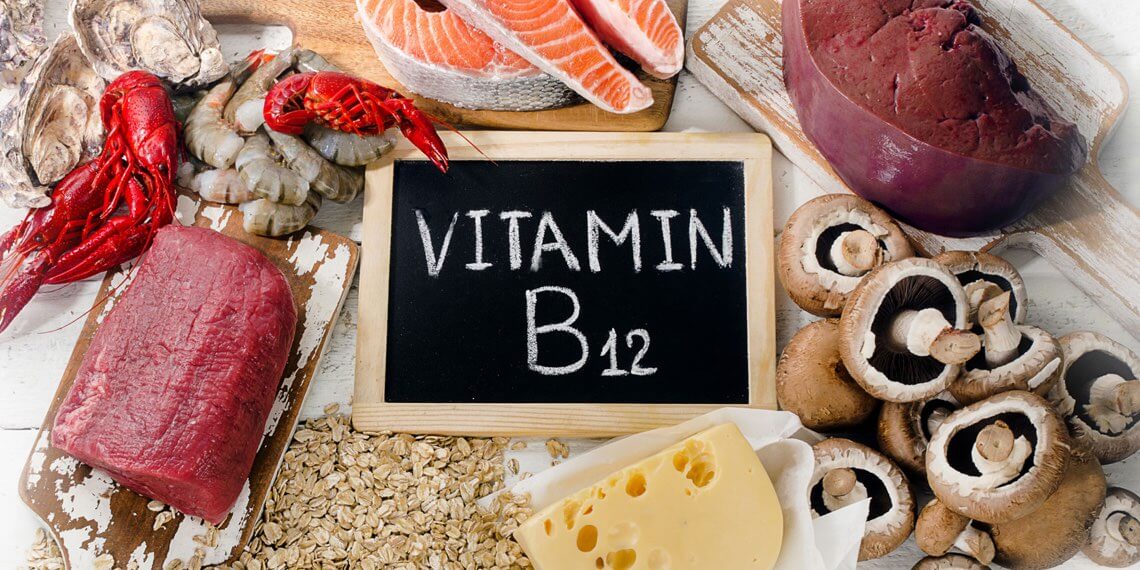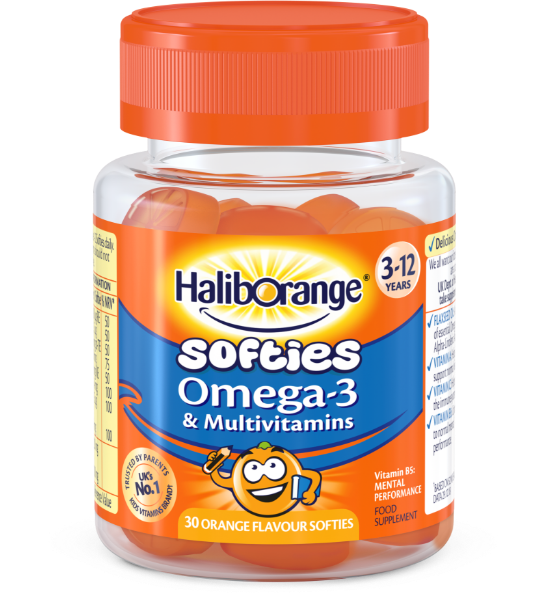
A guide to Vitamins and Minerals
A guide can help you discover the relevant nutrient information for each vitamin or mineral and how it can benefit your child
Vitamins are essential substances that cannot be manufactured by the body and we need small amounts of vitamins for growth and development. Plenty of foods naturally contain vitamins but it is not always easy to get all the nutrients we need from diet alone. This guide can help you discover the relevant nutrient information for each vitamin or mineral and how it can benefit your child.
Vitamin A
Vitamin A helps support healthy eyes
What is vitamin A?
Vitamin A is a fat soluble vitamin and is stored in the liver. It can be taken into the body in two forms:
- Retinol
which is animal-derived and is Vitamin A in its complete form. Sources include: fish oil especially fish liver oil, eggs, dairy products, milk and offal. - Carotenoids e.g. beta-carotene:
these chemicals make fruit and vegetables red, orange and yellow. They are converted to active vitamin A in our body. Good sources of these include: carrots, pumpkin, squash, chilli peppers, dried apricots, sweet potatoes and dark green leafy vegetables e.g. broccoli, spinach, spring greens and kale.

The key functions of Vitamin A include:
- healthy immunity
Vitamin A contributes to the normal function of the immune system. - healthy skin
the lining of the mouth, nose, throat, lungs and digestive tract. - healthy eyes.
- normal iron metabolism.
Why is vitamin A important to children’s health?
When children do not eat enough dairy, eggs or oily fish they run the risk of having low intakes of Vitamin A. Vitamin A helps to maintain healthy skin and vision as well as a healthy immune system.
Vitamin B6
Vitamin B6 contributes to the release of energy from food
What is vitamin B6?
Vitamin B6 (pyridoxal phosphate) actually comes as a group of compounds that are converted into their most active form in the body, this is called pyridoxine. B6 is water soluble and therefore a constant supply from the diet is required as the body does not keep long term stores.
Good sources of B6 include:
whole-grains, turkey, lentils and liver, oily fish, soy products, nuts, egg yolk and dark green leafy vegetables.

The key functions of Vitamin B6 are:
- healthy immune system.
- healthy nervous system.
- healthy energy yielding metabolism
Why vitamin B6 is important to children’s health?
Vitamin B6 contributes to the release of energy from food and is important for the production of red blood cells in your body. It can also help normal energy yielding metabolism and be important in maintaining a healthy immune system
Vitamin B12
Vitamin B12 contributes to the release of energy from food
What is vitamin B12?
B12 (cobalamin), although water soluble, can be stored by the body.
Good sources of B6 include:
animal derived foods: oily fish, eggs, oysters, tuna, cottage cheese, turkey and chicken. There are no naturally occurring vegetable sources of B12 therefore vegetarians and in particular vegans may benefit from a B12 supplement.

The key functions of Vitamin B12 are:
- healthy immune system
- healthy energy yielding metabolism
- contributes to normal neurological and psychological functions
Why vitamin B12 is important to children’s health?
Vitamin B12 contributes to the release of energy from food and is important for a healthy nervous system. It can also help normal energy yielding metabolism and be important in maintaining a healthy immune system.
Vitamin C
Vitamin C helps support a healthy immune system
What is vitamin C
Vitamin C is widely known to have a wealth of health benefits, and is available to some degree in most fruit and vegetables.
Good sources of Vitamin C include: blackcurrants, oranges, strawberries, green peppers, broccoli and kiwi fruit.
Care should be taken when cooking and storing foods however, as vitamin C can easily be destroyed by heat, light or oxyegn. Vitamin C is water soluble and needs to be replenished regularly therefore it is vital to ensure a constant supply through your diet.

The key functions of Vitamin C are:
- helps protect cells from oxidative damage.
- helps form collagen.
Collagen is the framework for the structure of bones, blood vessels, gums, teeth, skin and cartilage and is essential to keep them healthy and strong - Helps maintain a healthy immune system during and after extreme physical activity*
*22mg+ Vitamin C - contribution to the absorption of iron from food.
- for a healthy nervous system.
- helps you release energy from food.
- contributes in regenerating Vitamin E in the body.
Why vitamin C is important to children’s health?
When children do not eat enough fruit and vegetables they run the risk of having low levels of Vitamin C. Vitamin C is important in maintaining a healthy immune system which is important for children all year round.
Vitamin D
Vitamin D is essential for the growth and development of healthy bones and teeth
What is vitamin D
Vitamin D is also known as calciferol
Good sources of Vitamin D:
Our body produces vitamin D in the summer months from the action of sunlight on our skin. It is also available from foods including oily fish (herrings, sardines, trout, mackerel) and eggs. Fortified foods are a good source including low fat spreads and breakfast cereals, soya products, although be careful – these are often processed.

The key functions of Vitamin D are:
- the normal absorption and utilisation of Calcium
which makes the up majority of bone structure. - It is therefore needed for the normal growth and development of healthy bones and teeth in children.
- helps maintain a healthy immune system.
Why vitamin D is important to children’s health?
It is recommended children are exposed to 10 to 15 minutes of sunshine several times a week to obtain the recommended intake of vitamin D. This is not always easy in the winter months, especially as there are limited food sources. Vitamin D is important for the absorption of calcium and is therefore needed for normal growth and development of bones in children.
Omega 3
Omega 3 helps support healthy brain function
What is Omega 3
Oil from fish contains eicosapentaenoic acid (EPA) and docosahexaenoic acid (DHA). Both are Omega-3 fatty acids which help maintain healthy triglyceride levels.*
*2-4mg DHA
Good sources of omega 3 include: mackerel, salmon, herring, sardines, sablefish (black cod), anchovies, albacore tuna and wild game. Omega 3 fish oils are also formulated to contain high levels of EPA and DHA
Fish oil contains eicosapentaenoic acid (EPA) and docosahexaenoic acid (DHA), both omega-3 fatty acids. The omega-3 fatty acids present in fish oil help to balance omega-6 fatty acids, which are found in vegetable oils

The key functions of Omega 3 are:
- healthy blood triglyceride levels
- supports healthy brain function*
*Research has shown that eating 250mg DHA as part of a healthy lifestyle contributes to normal brain function. - healthy vision
Why Omega 3 is important to children’s health?
While both EPA and DHA are important for good health, it is DHA particularly which is thought to be important. Many of our everyday foods such as milk and margarines have been fortified with Omega-3 but at much lower levels. Research has shown that eating 250mg DHA as part of a healthy lifestyle contributes to normal brain function.
Calcium
Calcium is required for normal bone growth and development in children
Calcium is an essential mineral most strongly associated with bone health and 99% of the body’s Calcium is found in bones and teeth. Good sources of Calcium include: dairy products (Note: many people are intolerant to dairy products and they are high in saturated fats), kale, tofu, sardines (when soft, edible bones are consumed), seaweed, figs, sesame seeds, prunes, parsley, pumpkin seeds and almonds.
Calcium absorption is dependent on the presence of Vitamin D. Calcium levels in the blood are carefully controlled and the body uses the stores of calcium in the bone as a bank.

The key functions of Calcium are:
- healthy bones and teeth.
- healthy muscle function.
- healthy energy metabolism.
Why calcium is important for children’s health?
Milk and other calcium-rich foods have always been a must-have in kids’ diets. From an early age, we are required to eat three servings of dairy every day to give us strong bones and teeth. During childhood and adolescence, the body uses the mineral calcium to build strong bones for later life.
Vitamin E
Vitamin E provides antioxidant protection of body tissues
What is Vitamin E?
Vitamin E is fat soluble and widely available in common foods. It is measured in both international units and milligrams, but do not be alarmed, they are measuring the same actual chemical. The vitamin E content of foods is significantly reduced by freezing, heating and some food processing.
Good sources of Vitamin E include:
nuts and seeds, oily fish, unrefined corn oil, avocado and wheat germ oil.

The key functions of Vitamin E are:
- helps protect cells from oxidative damage.
Why is Vitamin E is important for children’s health
Small amounts of Vitamin E are needed to maintain good health. This vitamin can be important in providing antioxidant protection of body tissues.
Zinc
Zinc helps support a healthy immune system
What is Zinc?
Zinc is found in every cell of the body, adequate levels of zinc are essential for good health.
Good sources of Zinc include:
Oysters, beef, crab, sardines, pumpkin and sesame seeds, eggs and cheese.

The key functions of Zinc are:
- helps protect cells from oxidative damage.
- Contributes to a normal immune system.
- Contributes to the maintenance of normal bones.
- Contributes to the maintenance of normal vision.
- Contributes to normal hair, skin and nails.
- Contributes to normal metabolism.
Why is Zinc important for children’s health?
This mineral is important in maintaining general good health and for keeping the immune system strong.
Iron
Iron supports energy metabolism
What is Iron?
Iron is an essential mineral.
Good sources of iron include:
liver, meat, shellfish, soya, egg yolk, dried apricots, nuts and dark green leafy vegetables.

The main functions of iron in the body are:
- production of the haemoglobin, which makes blood red and it is there to transport oxygen and carbon dioxide from the cells around the body.
- Healthy immune system
- Healthy energy yielding metabolism
- Supports healthy brain function
Why Iron is important to children’s health?
Iron can be particularly important for babies, toddlers and young children, because their increased needs for iron may not be met if their diet is not balanced. Iron helps the body release energy and helps maintain general good health.*
*Iron taken in excess may be harmful to very young children.
-


Omega-3 & Multivitamins Softies x30
3-12 YEARS
Orange Flavour
د.إ90.00 Quick buy
